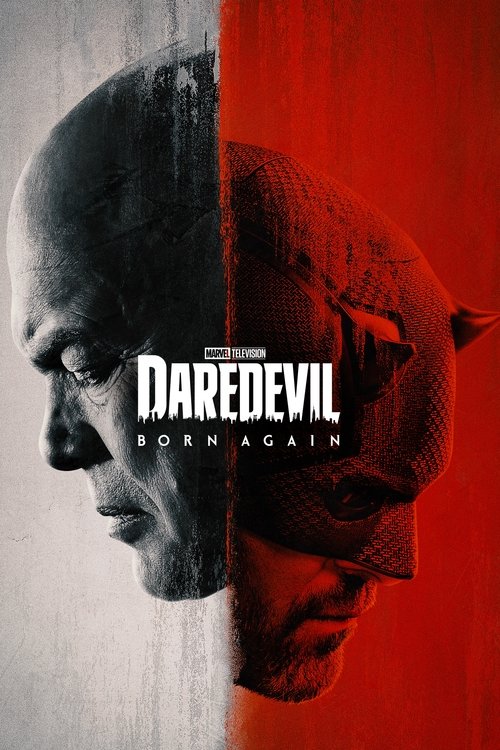
Ask Your Own Question
What is the plot?
In the episode "Histories & Lore: The History of the Night's Watch (Tywin Lannister)," the narrative begins with Tywin Lannister's voice providing context about the Night's Watch, an ancient order sworn to protect the realm from threats beyond the Wall. He explains the founding of the Night's Watch, which was established to guard the realm against the dangers lurking in the North, particularly the White Walkers and wildlings. Tywin's tone is authoritative, reflecting his position as a powerful lord and his disdain for the Night's Watch, which he views as a necessary but ultimately unglamorous duty.
The story then transitions to the early days of the Night's Watch, detailing how it was formed by the first men who recognized the need for a dedicated force to defend the realm. The visual imagery shifts to the Wall itself, a massive ice structure that looms over the landscape, symbolizing both protection and isolation. The harsh conditions of the North are depicted, showcasing the relentless cold and the dangers that lie beyond the Wall, including the mythical creatures that threaten humanity.
As Tywin continues to narrate, he recounts the various oaths taken by the members of the Night's Watch, emphasizing their commitment to duty above all else. The solemnity of these vows is highlighted through visuals of men in black cloaks standing resolutely against the backdrop of the Wall, their expressions a mix of determination and resignation. Tywin's commentary reveals his belief that the Night's Watch is filled with men who have nowhere else to go, reinforcing his view of them as failures in society.
The episode then delves into the history of notable figures within the Night's Watch, including the legendary Lord Commander who led the Watch during its most trying times. The narrative illustrates the internal struggles and conflicts faced by the Watch, including the challenges of leadership and the moral dilemmas that arise when dealing with the wildlings and other threats. The visuals depict fierce battles and the camaraderie among the brothers of the Night's Watch, showcasing their bravery and sacrifice.
Tywin's narration takes a darker turn as he discusses the decline of the Night's Watch, pointing out how the realm's indifference has led to a weakening of their ranks. He describes the growing threat of the White Walkers, emphasizing the urgency of the situation as the Wall becomes increasingly vulnerable. The imagery shifts to the ominous presence of the White Walkers, their chilling appearance serving as a stark reminder of the dangers that lie beyond the Wall.
The episode culminates with Tywin's reflections on the Night's Watch's role in the greater political landscape of Westeros. He expresses his belief that the Watch is often overlooked by the noble houses, who fail to recognize the importance of their duty. The final scenes depict the Wall standing tall against the encroaching darkness, a symbol of the ongoing struggle between light and shadow. Tywin's voice fades as the screen darkens, leaving viewers with a sense of foreboding about the future of the Night's Watch and the realm itself.
What is the ending?
In the episode "Histories & Lore: The History of the Night's Watch (Tywin Lannister)," the narrative does not follow a traditional plot structure with a beginning, middle, and end. Instead, it serves as an informative piece that delves into the history of the Night's Watch, narrated by Tywin Lannister. The episode concludes with a reflection on the Night's Watch's enduring duty and the sacrifices made by its members, emphasizing the importance of their role in protecting the realm from the dangers beyond the Wall.
As the episode unfolds, Tywin Lannister's voice guides the audience through the storied past of the Night's Watch. The scenes are rich with imagery, depicting the vast, icy landscapes of the North and the imposing Wall that stands as a barrier against the threats lurking in the shadows.
The narrative begins with the founding of the Night's Watch, established to guard the realm from the dangers that lie beyond the Wall. Tywin recounts the ancient legends of the White Walkers and the wildlings, painting a vivid picture of the threats that have persisted through the ages. The audience sees the stark contrast between the warmth of the Seven Kingdoms and the cold, desolate expanse of the North, symbolizing the perpetual struggle between safety and danger.
As Tywin continues, he describes the various oaths taken by the members of the Night's Watch, emphasizing their commitment to duty above all else. The imagery shifts to the training of new recruits, showcasing the harsh realities of life at the Wall. The recruits, often from noble families or those seeking redemption, face grueling conditions, and the audience can feel the weight of their choices as they abandon their past lives for the sake of the realm.
The narrative also touches on the internal conflicts within the Night's Watch, highlighting the struggles for leadership and the differing motivations of its members. Tywin's voice carries a tone of disdain for the perceived weakness of some leaders, contrasting with the unwavering resolve of those who truly understand the gravity of their mission.
As the episode nears its conclusion, Tywin reflects on the sacrifices made by the Night's Watch, illustrating the toll that their duty takes on their lives. The audience is shown scenes of fallen brothers, their faces etched with determination even in death, underscoring the theme of honor and sacrifice that permeates the Night's Watch's history.
In the final moments, Tywin's narration emphasizes the ongoing nature of the Night's Watch's struggle, suggesting that their fight is far from over. The imagery of the Wall stands tall against the backdrop of a darkening sky, symbolizing the ever-present threat that looms over the realm. The episode closes with a sense of foreboding, leaving viewers with the understanding that the Night's Watch's duty is eternal, and the sacrifices made by its members will continue to echo through the ages.
In summary, while the episode does not feature a traditional ending with character fates, it encapsulates the essence of the Night's Watch and the enduring legacy of those who serve within its ranks. The focus remains on the collective struggle and the weight of their oaths, rather than individual character arcs.
Is there a post-credit scene?
In the episode "Histories & Lore: The History of the Night's Watch (Tywin Lannister)" from the "Game of Thrones" specials, there is no post-credit scene. The episode focuses on Tywin Lannister's narration about the Night's Watch, detailing its history, purpose, and the challenges it faces. It provides insights into the organization's founding, its role in guarding the Wall, and the sacrifices made by its members. The episode concludes without any additional scenes or content after the main narrative, maintaining a focus on the lore and history presented throughout.
What role does Tywin Lannister play in the history of the Night's Watch?
Tywin Lannister, as a prominent figure in Westeros, provides a critical perspective on the Night's Watch, emphasizing its importance and the political implications of its existence. He views the Night's Watch as a necessary institution, albeit one that is often neglected and underfunded by the realm.
How does Tywin Lannister's view of the Night's Watch reflect his character?
Tywin's pragmatic and often ruthless nature is evident in his assessment of the Night's Watch. He sees it as a tool for maintaining order and control over the North, rather than a noble cause, which highlights his utilitarian approach to power and governance.
What historical events involving the Night's Watch are mentioned in relation to Tywin Lannister?
The narrative recounts significant events such as the Night's Watch's struggles against the Wildlings and the White Walkers, illustrating the ongoing threats to the realm that Tywin acknowledges, even if he does not prioritize their needs.
How does Tywin Lannister's family history influence his perspective on the Night's Watch?
Tywin's lineage and the legacy of House Lannister shape his views on the Night's Watch, as he believes that the strength of his house should be reflected in the security of the realm, including the protection offered by the Night's Watch.
What emotional tone does Tywin Lannister convey when discussing the Night's Watch?
Tywin's tone is often dismissive and condescending, reflecting his belief that the Night's Watch is a necessary evil rather than a noble endeavor. This attitude reveals his lack of empathy for the men who serve there, viewing them more as pawns in his larger game of power.
Is this family friendly?
The episode "Histories & Lore: The History of the Night's Watch (Tywin Lannister)" from Game of Thrones contains several elements that may be considered objectionable or upsetting for children or sensitive viewers.
-
Violence and Death: The Night's Watch has a history filled with battles, betrayals, and the harsh realities of life on the Wall, which may include discussions of death and violence.
-
Dark Themes: The overarching themes of loyalty, sacrifice, and the grim duties of the Night's Watch can be heavy and may not be suitable for younger audiences.
-
Morality and Betrayal: The complexities of character motivations, including betrayal and moral ambiguity, may be difficult for children to understand.
-
Fear and Isolation: The portrayal of the Wall and the dangers beyond it can evoke feelings of fear and isolation, which might be unsettling.
-
Mature Language: The dialogue may include mature language or concepts that are not appropriate for younger viewers.
These elements contribute to a tone that is more suited for mature audiences, making it less family-friendly.
























